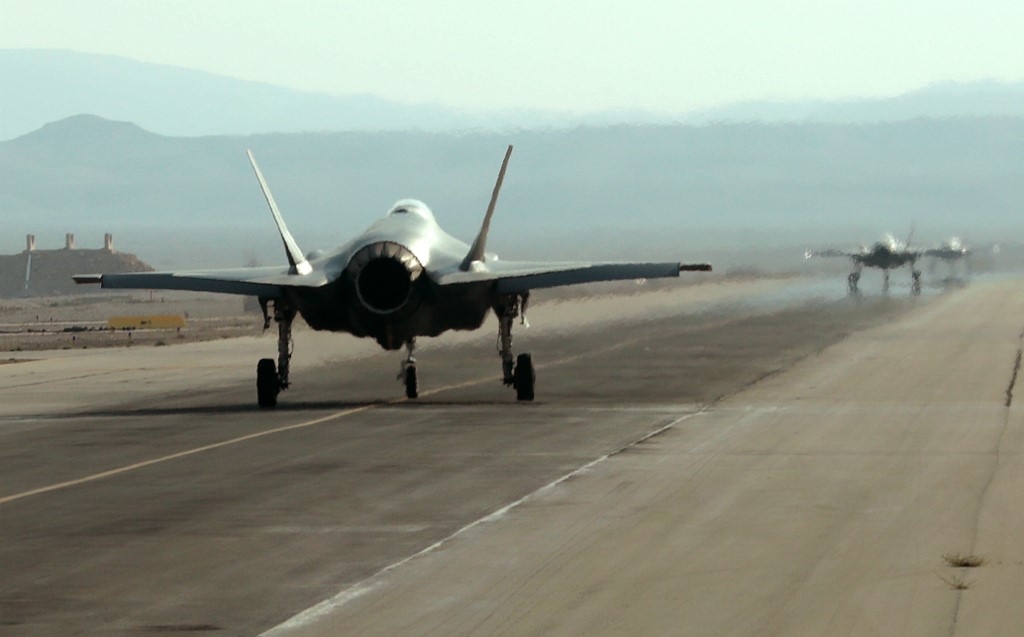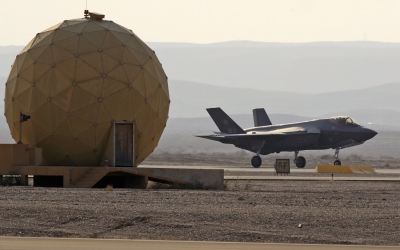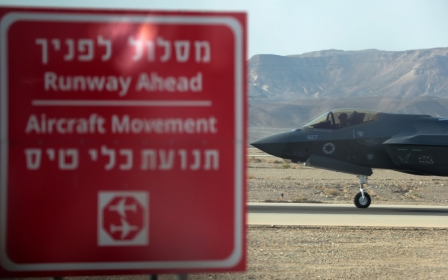House Democrats introduce bill to restrict US arms sales to Arab countries

House Democrats introduced a bill intended to restrict the sales of certain weaponry to Arab countries, the latest piece of legislation brought to Congress to protect Israel's military edge in the region.
Eliot Engel, chair of the House Committee on Foreign Affairs, introduced the legislation on Friday, along with 10 other legislators, amid concerns over the Trump administration's plans to sell F-35 fighter jets to the United Arab Emirates (UAE).
"The Trump Administration has made it clear that they'll put lethal weaponry in just about anyone's hands without regard to potential loss of life so long as the cheque clears," Engel said in a statement.
"So it's up to Congress to consider the ramifications of allowing new partners to purchase the F-35 and other advanced systems.
"The bill I'm introducing would lay out clear conditions governments would have to meet if they want to purchase the F-35 and other sensitive equipment."
The bill requires that before a Middle Eastern country can purchase certain arms from the United States, it must demonstrate that it has signed a normalisation agreement with Israel and that its purchase preserves Israel's military advantage.
Among other requirements, the weapons would also need to have been modified to ensure that Israel is able to identify, locate, and continually track them. The recipient country would be barred from altering such modifications.
Lawmakers have made a priority of protecting Israel's military advantage in the region, recently introducing several bills addressing the issue from different angles.
A spike in pro-Israel legislation
The new series of legislative efforts was prompted by reports that the UAE had been promised a chance to buy American stealth jets in a side deal made when they agreed to normalise relations with Israel in August.
On Thursday, Engel said the Trump administration had moved forward with its plans, informally giving a required notification to Congress on the sale. The White House reportedly intends to sell the UAE 50 F-35 fighter jets, worth about $10.4bn.
Lawmakers from both parties have expressed concerns that selling the F-35s would run afoul of a US commitment, enshrined in law, to maintain Israel's "qualitative military edge".
Because of the qualitative military edge restriction, the F-35s were previously denied to Arab states, while Israel has acquired about 24 of the aircraft.
Last week, senators Bob Menendez and Dianne Feinstein introduced legislation to require the White House to certify that Israel's military advantage in the region would not be jeopardised, before the US starts selling its most advanced aircraft to Middle Eastern countries.
The legislation "places significant limits on this or any future administration's ability to sell the F-35 aircraft to the Middle East, where it could threaten our interests and Israel’s military edge in the region", Feinstein said in a statement.
That followed legislation introduced earlier this month by a bipartisan group of US lawmakers seeking to give Israel veto authority over Washington's arms sales to the Middle East.
That bill requires the president to consult with the Israeli government to ensure that it agrees that its qualitative military edge is preserved by any potential sale in the region. Under current US law, the United States Congress has the sovereign authority to make the distinction, not Israel.
Middle East Eye delivers independent and unrivalled coverage and analysis of the Middle East, North Africa and beyond. To learn more about republishing this content and the associated fees, please fill out this form. More about MEE can be found here.






